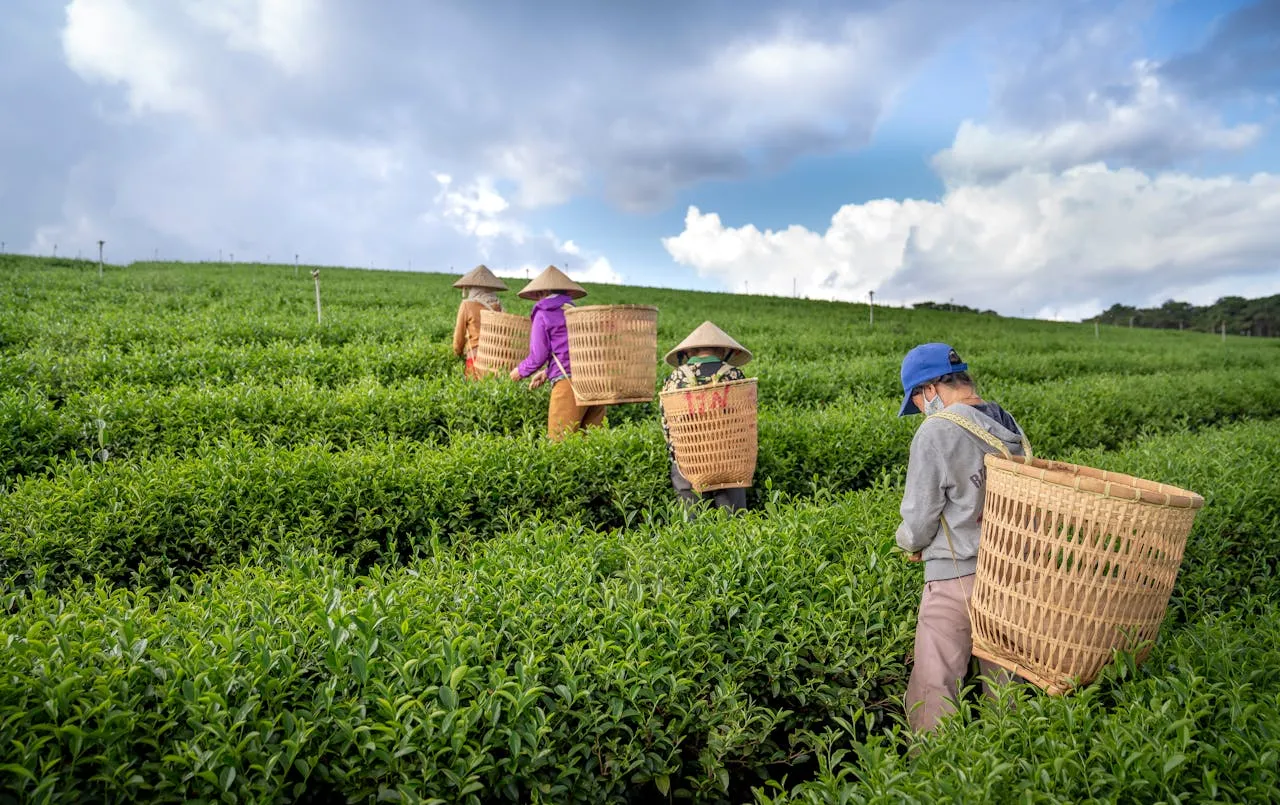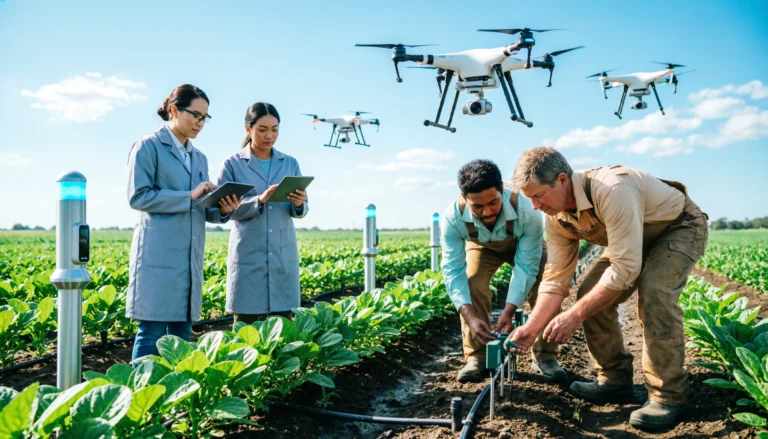
On the International Day of Rural Women, Project Dandelion has launched a powerful new global campaign calling for increased investment in smallholder farmers ahead of the 2025 United Nations Climate Change Conference (COP30). In collaboration with the International Fund for Agricultural Development (IFAD), the campaign emphasizes the transformative potential of investing in smallholder farmers—particularly women—to strengthen food security, advance climate resilience, and drive inclusive development across rural communities worldwide.
Smallholder Farmers: The Unsung Backbone of Global Food Systems
Smallholder farmers are the foundation of the world’s food supply, producing nearly one-third of global food and up to 70% of Africa’s total output, according to the Food and Agriculture Organization (FAO). Despite their indispensable role, smallholders receive less than 1% of global climate finance, leaving millions of farmers without the resources needed to adapt to worsening droughts, floods, and other climate shocks.
Women sit at the heart of this challenge—and the solution. In many regions, women represent the majority of the agricultural labor force, accounting for more than two-thirds of employed women in South Asia and around 66% in sub-Saharan Africa. They are the farmers, innovators, and community leaders driving agricultural productivity and sustainability. Research shows that if women farmers had equal access to resources such as land, finance, and technology, global agricultural output could rise significantly, adding an estimated US$1 trillion to the world economy.
“Smallholders are anything but ‘small’—they power our food system, drive rural economies, and lead innovative climate solutions that benefit us all,” said Mary Robinson, Co-Founder of Project Dandelion and the first woman President of Ireland. “The lack of investment in women farmers is not just an injustice—it is holding back the solutions we urgently need.”
The Campaign’s Core Message: Invest Where the Impact Is Greatest
As the world prepares for COP30, Project Dandelion’s campaign calls on leaders, donors, and policymakers to prioritize direct investment in smallholder farms and recognize women farmers as central to achieving global climate and food security goals. The initiative highlights proven success stories from countries like Ethiopia and India to demonstrate that empowering women with access to finance, training, and leadership opportunities produces measurable and lasting results.
By showcasing these real-world examples, the campaign underscores how targeted investments can transform local economies, strengthen climate adaptation, and uplift rural communities. Productivity increases, incomes rise, resilience deepens, and sustainable practices take root—all outcomes that multiply when women are given the tools to lead.
Transforming Communities: Stories of Change
In Ethiopia, women have begun to reshape local agricultural governance through the Participatory Agriculture and Climate Transformation (PACT) Programme, a collaboration between IFAD and the Ethiopian Ministry of Agriculture. Women now hold 25% of leadership positions in Irrigation Water User Associations, a shift that has led to better water governance, improved distribution, and higher crop yields. This transformation has extended growing seasons from one to three per year, significantly boosting household incomes and community resilience.
“We have witnessed that investing in women pays in multiple ways—it improves productivity, increases returns from farming, and enhances family wellbeing while conserving the natural environment,” said Nuredin Asaro, National Program Manager of the PACT Programme. “Our goal is to challenge restrictive norms and empower women to realize their full potential. The journey of empowering women never ends—it only grows stronger with continued investment.”
In India, the story of women-led transformation continues through bamboo cultivation projects that are reclaiming once-barren lands and turning them into thriving sources of sustainable income. Supported by the Mahila Arthik Vikas Mahamandal (MAVIM), Maharashtra’s Women Development Corporation, women farmers are now connecting with industries and global supply chains, establishing themselves as integral players in the green economy.
“Ensuring access to literacy, financial services, skills, and entrepreneurial opportunities for women farmers enhances their livelihoods and strengthens communities,” said Rajlaxmi Shah (IAS), Managing Director of MAVIM. “When women lead, they improve household incomes, drive education and health outcomes, and foster inclusive growth across society.”
Women Farmers: Leaders in Climate Resilience and Economic Growth
The campaign’s message extends beyond highlighting success stories—it urges structural change. It calls for breaking down the systemic barriers that have long sidelined rural women from decision-making, credit access, and resource control. Women farmers are not waiting for aid; they are already leading on the frontlines of food production and climate adaptation.
“Women farmers are not waiting for handouts; they are already feeding their communities, running small businesses, and managing natural resources,” said Gerardine Mukeshimana, Vice-President of IFAD. “By investing in women farmers, we are not only supporting livelihoods and food security—we are also building stronger, more stable societies.”
Investing in women smallholders offers a high return on impact. Empowering women increases agricultural productivity by up to 30%, according to IFAD data, while also improving household nutrition, education rates, and climate resilience. These investments pay dividends for entire nations by reducing poverty, strengthening food systems, and driving inclusive growth.
A Call to Action Ahead of COP30
As COP30 approaches, Project Dandelion’s campaign is rallying global leaders, financial institutions, NGOs, and grassroots organizations under a unified banner: “COP30 Leaders – Invest Where the Impact Is Greatest.”
Through digital storytelling, partnerships, and on-the-ground initiatives, Project Dandelion aims to amplify the voices of women farmers and bring their innovations to the forefront of the global climate dialogue. The campaign emphasizes that climate solutions must be rooted in local knowledge and equity—and that women smallholders hold the key to sustainable food and climate futures.
“Women farmers are not a side story; they are central to the fight against climate change,” said Ronda Carnegie, Co-Founder and Executive Director of Project Dandelion. “The real-life stories shared through this campaign show that when we invest in women farmers, we invest in a livable future. Women farmers deliver every day for their families, their communities, and our planet. Now it’s our turn to deliver for them.”
Building a Future Grounded in Equity and Resilience
The campaign’s timing is deliberate. As nations prepare for COP30, the world stands at a crossroads: global hunger is rising, climate impacts are accelerating, and the funding gap for smallholder farmers remains vast. Project Dandelion’s initiative offers a clear path forward—one that invests in the people most capable of building resilient food systems from the ground up.
By investing in women-led farming, the international community can unlock transformative change: more resilient crops, stronger economies, healthier families, and a sustainable future for all. The message from Project Dandelion and IFAD is clear—real progress on climate and food security begins by empowering those who grow the world’s food.




